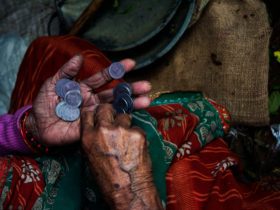Each Czech sorted an average of 66.8 kilograms of waste last year, 1.6 kilograms more than in 2019. Various producers put 1.23 million tonnes of non-returnable packaging on the market last year, of which 76 percent was recycled and sent for further recycling.
In 2019, with a slightly lower amount of packaging, the figure was 73 percent, according to data from Eko-Kom, which organizes the collection and recycling of waste in the Czech Republic.
“Despite pandemic restrictions, Czech residents did not stop sorting their household waste and even sorted it with greater intensity,” Eko-Kom said of last year’s results.
Traditionally, paper was again the most sorted, with a recycling rate of 90 percent last year. The recycling rate was 88 percent for glass, 70 percent for plastic packaging, 61 percent for metals, and 24 percent for beverage cartons.
Of the total packaging sorted, less than half was sorted by people in municipal collection systems, while industries and commercial operators sorted the rest.
According to Eko-Kom, 73% of the population brings their sorted waste to colored containers regularly. Last year, people could sort waste into 558,000 colored containers and smaller bins, up 18 percent yearly.
In particular, the share of multi-collection containers is growing significantly, with, for example, metals being sorted into the yellow container along with plastics. The average walking distance to a container last year was 90 meters.










Leave a Reply